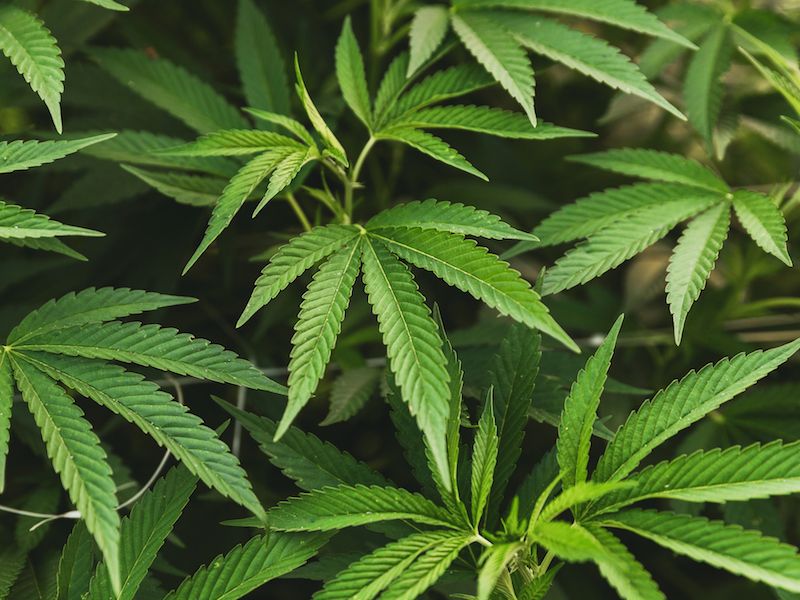
Public opinion surrounding marijuana and cannabinoids have changed remarkably in the last few decades. THC, cannabinoids, and even marijuana are legal for medical use in most states. A decade ago it would have been unimaginable for pot to be legal for recreational use but some states have even passed this law.
A group of substances originating from the cannabis plant (the marijuana plant, basically) are referred to as cannabinoids. Notwithstanding their recent legalization in some states, we’re still discovering new things about cannabinoids. We usually consider these particular compounds as having universal healing properties, but current research suggests there could also be negative effects including a strong link between cannabinoid use and the occurrence of tinnitus symptoms.
Cannabinoids Have Numerous Types
There are many forms of cannabinoids that can be used now. It isn’t just weed (or ganja, or pot…..ok, there are lots of nicknames for marijuana so let’s move on). These days, THC and cannabinoids can be obtained in pill form, as topical spreads, as inhaled vapor, and lots of others.
The forms of cannabinoids available will vary state by state, and many of those forms are still officially illegal under federal law if the amount of THC is more than 0.3%. That’s the reason why some people tend to be rather careful about cannabinoids.
We still need more research and experience before we will really comprehend the long range and side effects of cannabinoids. Some current research into how cannabinoids impact your hearing is a prime example.
New Studies Into Cannabinoids And Hearing
Whatever you would like to call it, cannabinoids have long been associated with improving a wide variety of medical conditions. Vertigo, nausea, seizures, and more seem to be improved with cannabinoids, according to anecdotally available evidence. So researchers resolved to see if cannabinoids would be helpful with tinnitus, too.
Tinnitus could actually be caused by cannabinoid use, as it turns out. Ringing in the ears was documented by over 29% of participants after implementing cannabinoids. And these participants had never had tinnitus symptoms before the study. Furthermore, marijuana users were 20-times more likely to report experiencing tinnitus symptoms after 24 hours.
Further research suggested that marijuana use could aggravate ear-ringing symptoms in those who already deal with tinnitus. So, it seems fairly certain that tinnitus and cannabinoids aren’t really compatible.
How Cannabinoids worsen tinnitus
There are a couple of tangible ways in which cannabinoids can make your tinnitus experience worse. The first is that your tinnitus can happen more frequently. Cannabinoids can also cause tinnitus symptoms to become more intense. The discomfort from the ringing may get more noticeable or harder to just ignore.
Cannabinoids have also been found to lead to the onset of tinnitus symptoms. Or, stated another way: if you didn’t suffer from tinnitus before, you might develop tinnitus after you use cannabinoids.
The Causes of Tinnitus Are Unclear
We recognize that there’s a connection between tinnitus and certain triggers but we’re still not certain what the actual root causes are. It’s clear that cannabinoids can have an effect on the middle ear and symptoms of tinnitus. But it’s far less clear what’s causing this impact.
But we are aware that marijuana is one of the few frequently used mood-altering substances that brings about tinnitus (alcohol, for example, hasn’t been demonstrated to have a strong connection with tinnitus).
Research, unquestionably, will continue. Cannabinoids nowadays come in so many options and forms that discovering the fundamental connection between these substances and tinnitus would help individuals make better choices.
The Miracle Cure Beware
Lately there has been lots of hype created around cannabinoids by marketers. Partly, that’s the result of changing perceptions about cannabinoids themselves (and, it could also reveal that people are making an attempt to get away from opioid use). But cannabinoids can and sometimes do produce undesirable results, based upon this new research, and this is especially true when it comes to hearing.
You’ll never be able to steer clear of all of the cannabinoid enthusiasts and evangelists in the world, the marketing of cannabinoids has been extremely aggressive.
But tinnitus and cannabinoids are clearly associated based on this research. So regardless of how many adds you see for CBD oils, if you’re concerned about tinnitus, you should most likely avoid them. The link between cannabinoids and tinnitus symptoms has been quite securely established by the research, so it’s worth being careful.

